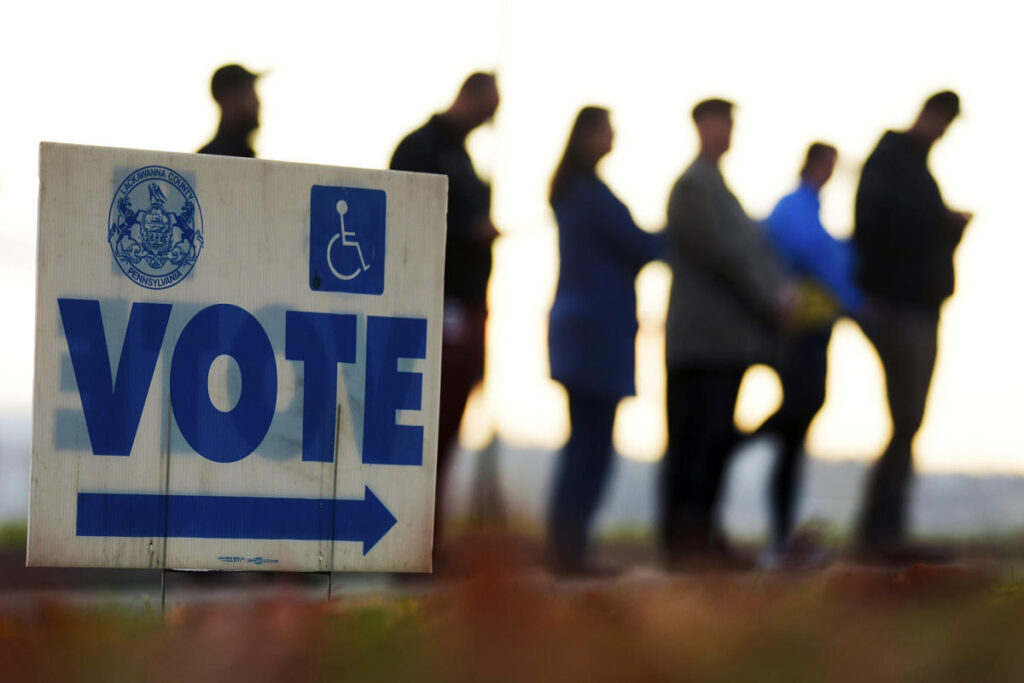As Election Day unfolds, officials, legal experts, and researchers are preparing for an anticipated surge of disinformation and legal challenges as Americans begin to cast and count their votes. Various elements during the closing week of the campaign suggest a potential for prolonged legal battles should the results be close. Numerous lawsuits have already been filed, many of which are deemed baseless, while both domestic and foreign entities are disseminating false narratives regarding voter fraud. Former President Donald Trump has been vocal in alleging that the election is rigged against him, stating at a recent rally in Allentown, Pennsylvania, that “they’ve already started cheating.” Election experts contend that a speedy announcement of clear results could foster public confidence, but delays or a narrow margin could ignite disputes and a wave of disinformation, intensifying doubts and unrest in the electoral system.
Researchers and election professionals expect a barrage of rumors on Election Day, which could stem from both genuine concerns and perceived voting issues. Danielle Tomson from the University of Washington highlighted the likelihood of political actors exaggerating real problems to suggest broader fraudulent schemes. Particular attention is anticipated on contentious states, voting equipment, and eligibility issues. In Maricopa County, Arizona, elections worker Jennifer Liewer expressed readiness for potential disruptions, underscoring that security personnel have been assigned to manage any threats. Still, she expressed uncertainty regarding public reactions as results are posted, hoping for trust in the election system.
Amidst this tension, a coalition of 25 researchers from the Center for an Informed Public in Seattle will be monitoring for misinformation on Election Day. These experts predict a widespread dissemination of misleading content claiming voting irregularities, conspiracy theories, and allegations of fraud. Throughout the election season, there has been a notable surge in online claims regarding malfunctioning voting machines, noncitizen voting, and other procedural irregularities. Furthermore, conservative groups have indicated their plans to label any errors or delays as fraudulent, thus amplifying fears and suspicions among the electorate regarding election integrity.
The contemporary landscape for sharing election-related misinformation has evolved, creating a structured environment for disseminating rumors. Unlike previous elections, organized channels and platforms have emerged to propagate claims of irregularities more systematically. For instance, on social media platforms like X, which is owned by Elon Musk, a rapidly growing community dedicated to sharing alleged instances of voter fraud has surfaced, significantly contributing to the spread of conspiracy theories and unfounded allegations. Prominent figures in the election denial movement have used various tools and apps to collect and circulate supposed evidence of fraud, further complicating efforts to validate or refute claims of electoral misconduct.
Alongside domestic disinformation, foreign actors, particularly from Russia, have been identified as influencing the narrative by spreading lies designed to undermine public confidence in the election process. U.S. intelligence agencies announced the detection of manipulated videos and articles stemming from Russian sources that falsely discuss planned election fraud tactics. These actions coincide with heightened security measures, such as the deployment of the National Guard in numerous states and the installation of barriers around significant locations, including the White House and the residence of Vice President Kamala Harris. Local election officials maintain a resolve to ensure that the electoral process runs smoothly, with Liewer emphasizing the importance of facilitating a fair and transparent election for the benefit of all voters.
As tensions mount and potential disinformation reverberates, election officials are bracing for dilemmas that could emerge in the wake of the election, but they remain focused on their duty to maintain electoral integrity. The unfolding events represent a critical juncture for not only the immediate electoral process but also the broader health of democratic institutions in the U.S. Amidst the backdrop of pervasive disinformation and various actors’ strategic attempts to influence public perception, the ultimate outcome of the election will heavily depend on how resolutely election officials can respond and how effectively the legal system can safeguard against unfounded challenges to electoral outcomes. Regardless of the immediate results, the implications for trust in the electoral process and democratic norms are profound, posing a challenge that could reverberate well beyond the election night.

